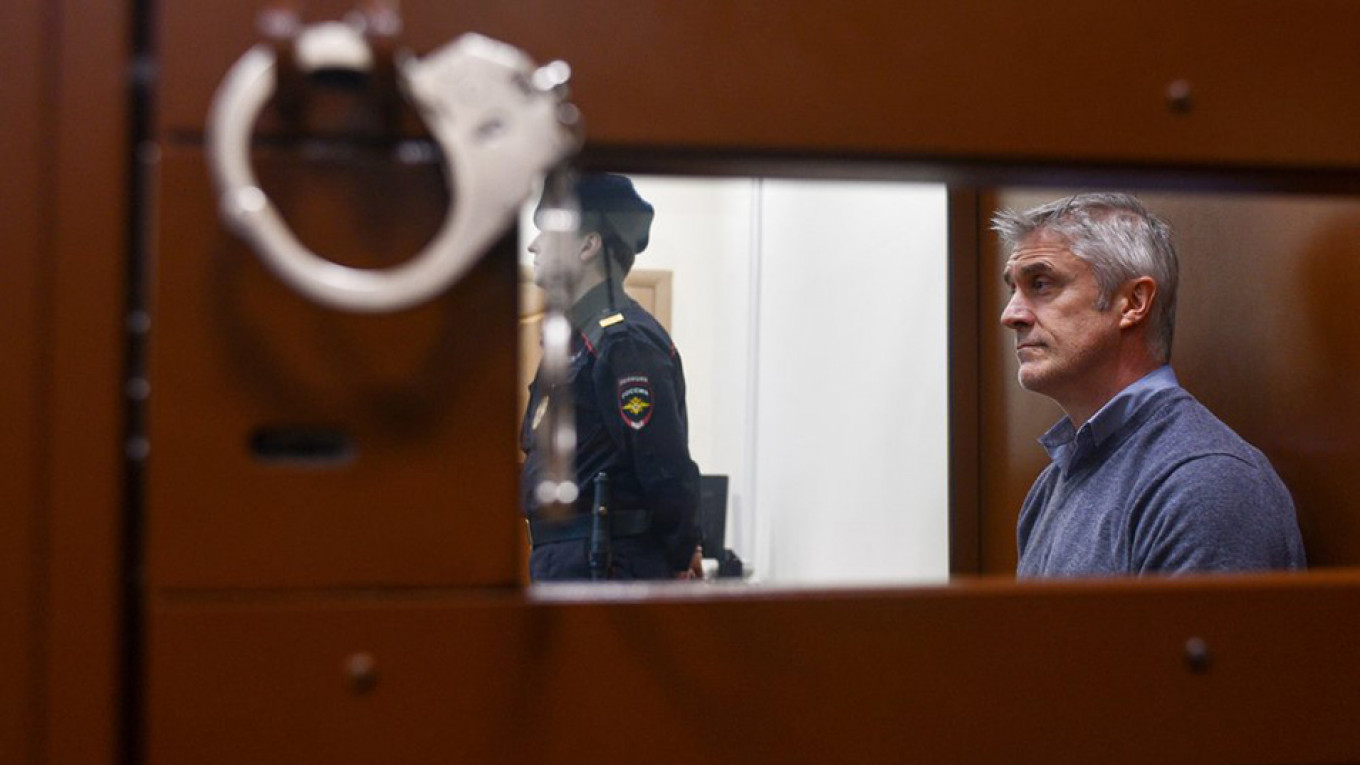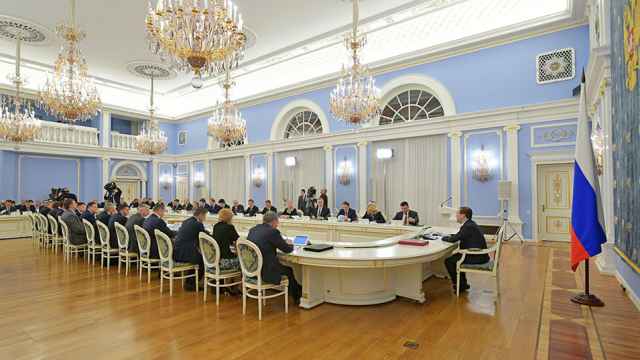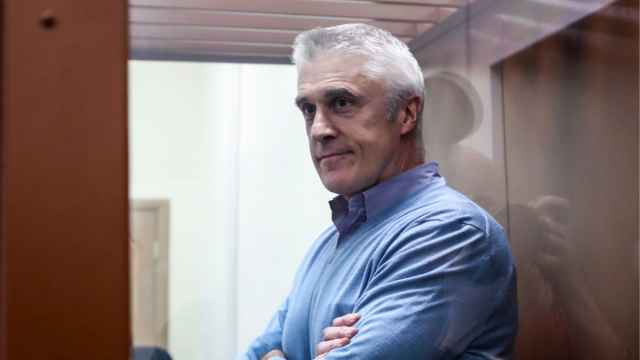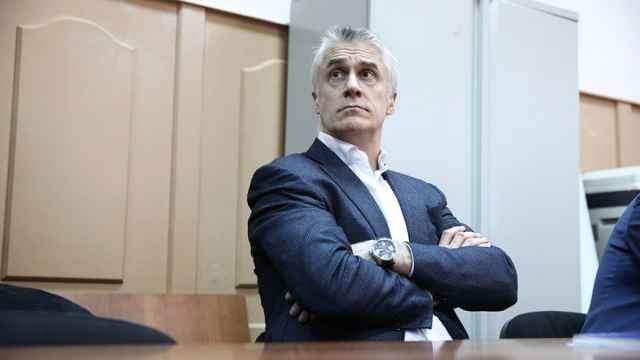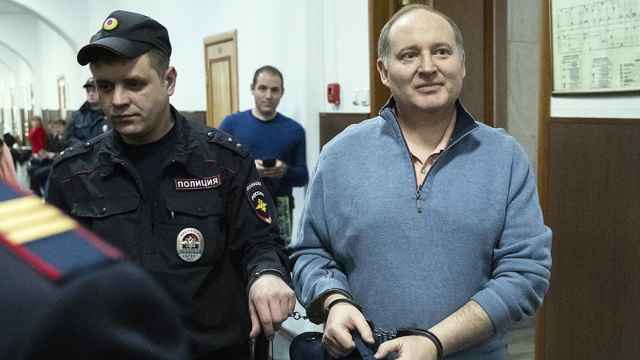U.S. citizen and arguably Russia’s most successful fund manager Michael Calvey was detained exactly one month ago today. He is still sitting in jail despite a public outcry from his colleagues in the finance industry and a raft of leading Russian liberal politicians.
His case is due to go to trial in April, where Calvey and his Baring Vostok colleagues who were also arrested face up to 10 years in jail if convicted.
The case has been another blow to Russia’s already battered investment image, and now there are calls for international businessmen to boycott the St. Petersburg International Economic Forum (SPIEF) in protest.
However, investors are unlikely to stay away. And if they actually did, it would probably make things worse.
The call for investors to stay away from SPIEF will probably come to nothing. It takes place in June, and there will be probably some clarity on Calvey’s fate by then. Most of the investors will probably show up to SPIEF anyway for two reasons: minerals and markets.
BP CEO Bob Dudley, who is no stranger to the Russian way of doing business, has already confirmed his attendance at SPIEF this year. Dudley himself fled Russia when he suspected he was about to be arrested, but for his company, there is no way he cannot go.
SPIEF is the most prestigious investors’ meeting of the year and a soapbox from which the Kremlin peddles its investment case.
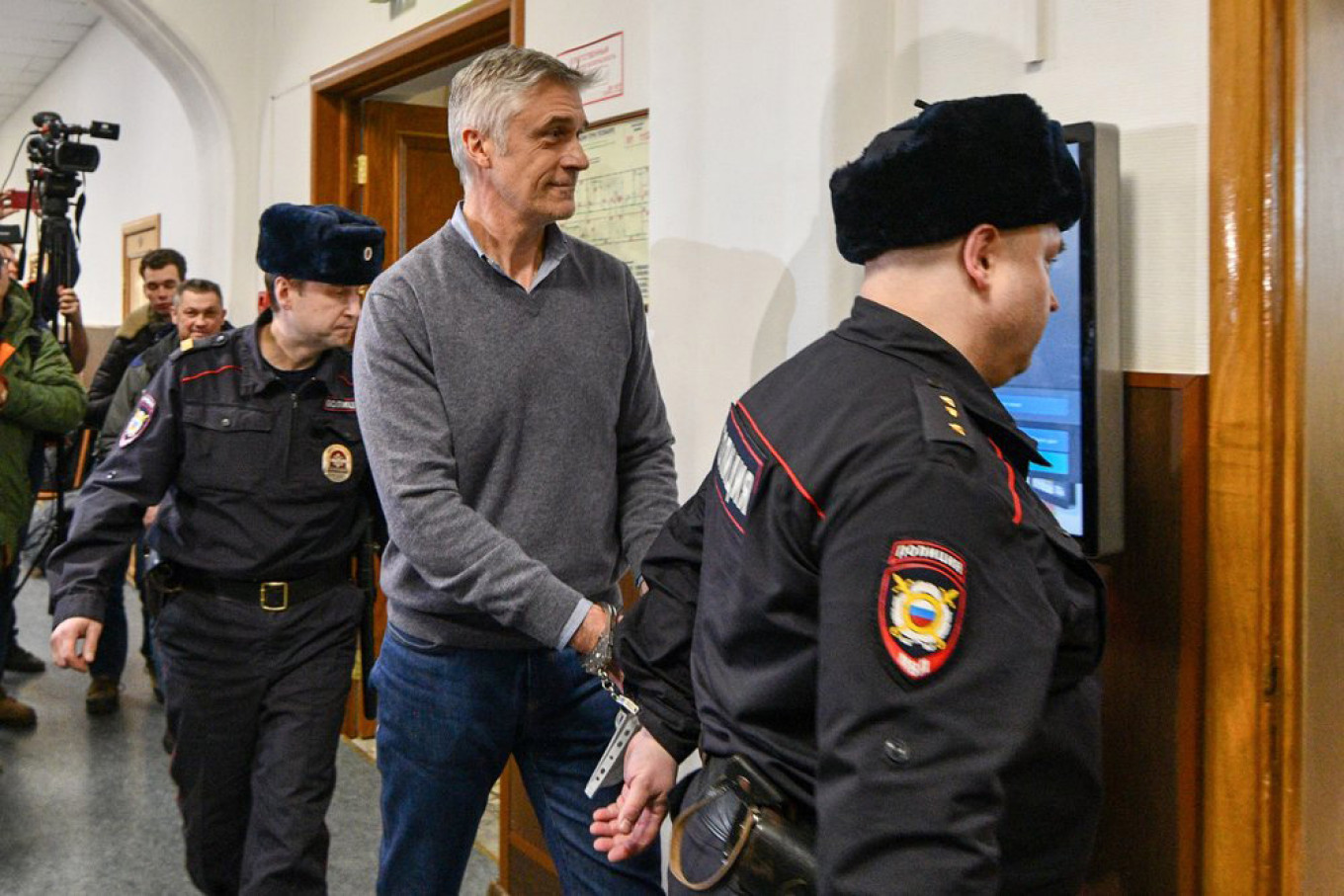
Foreign direct investment (FDI) is Russia is not big, but the Kremlin values the partners it has — and numbers many of the world’s biggest companies among them. For a senior executive like Dudley to not show — and to refuse to come as a form of protest — would be taken as an offense by the Kremlin.
As BP owns some 19 percent in state-owned oil major Rosneft, a famously ill-tempered company that has already jailed a sitting minister, BP would be foolish to slight its Russian partners.
It is almost entirely dependent on Russia to access to oil fields, and its relationship with the Kremlin is crucial for the company’s business. Dudley would not dream of doing anything to jeopardize that.
I’m sure everyone is upset with Calvey’s arrest and would love to help, but as the saying goes: Businessmen don't care about politics; they care about profits. There is too much money at stake to risk insulting the Kremlin over one unfortunate fund manager.
The Kremlin, like most emerging market governments, remains very thin-skinned.
That means Russia’s investors have to be very thick-skinned. I’ve made this point before: Calvey’s arrest is awful for Russia’s investment image, but it is hard to see how its image could be any worse.
Long-term investors into Russia are well aware of the risks. But they come anyway, as the returns are inversely proportional to the risk — as Calvey’s own career has shown.
A boycott of SPIEF would make things worse. So far the Calvey case has been treated as the commercial dispute it is.
As I argued in a recent op-ed, President Vladimir Putin’s hands are tied as he has said on multiple occasions in connection with other arrested businessmen that the Kremlin cannot interfere with the courts.
Once the Federal Security Service launched the case (FSB) the legal machine has to be seen, at least, to go through its cycle. That means Calvey has to sit in pre-trial detention like any other Russian businessmen until the formal trial starts in April.
Businessmen don't care about politics; they care about profits.
But behind this charade is Putin’s relationship with the FSB, which is a crucial lever in his control system.
To let Calvey out by fiat would undermine the FSB and embarrass the service, which would be shown publically to be a plaything of irate businessmen. It's a golden rule of Russia watching that if the Kremlin has to chose between limiting damage to its international image and the domestic agenda, it always chooses the domestic agenda.
However, given the vocal support that the liberals in government have offered Calvey and the genuine appreciation of his work by those in the government and him personally, it seems likely that the Kremlin will try and arrange a release somehow. Perhaps some technicality will be found to cancel the case.
Or in order to allow the FSB to save face, maybe Calvey will be found guilty but given a suspended sentence and a token fine. The easiest way to get him off the hook would be for an independent auditor to revalue the shares that are at the heart of the case.
Barings Vostok Capital Partners (BVCP) hired KPMG to value these shares, while its Russian partner Artem Avetisyan reportedly used an auditor he controls to come up with the much lower valuation.
If a second audit comes up with the same RUB 3bn valuation that KPMG put on the shares the case against Calvey would collapse.
A fix is only possible while this remains a “normal” corporate dispute.
However, a boycott of SPIEF to protest Calvey’s arrest would make the case political, and that would almost certainly ensure Calvey’s incarceration.
U.S. Ambassador Jon Huntsman is reportedly staying away from SPIEF in protest, but other than this gesture the U.S. government has been remarkably quiet on the whole affair. If lots of other businessmen stayed away, that would only make Calvey’s predicament worse.
If you try to bully Putin into releasing Calvey with a boycott you force Putin into a corner. In the same way that he can’t be seen to be interfering with the court system, he can’t be seen to cave into western strong-arm tactics. That would undermine his authority with the elite — the only constituency he actually cares about.
If Calvey was actually found guilty and jailed, then all that would change, I’m sure. The U.S. government would act in full force with more sanctions and any other means it has to free Calvey.
In the meantime, the clever strategy is to keep things on the down-low and let the Baring Vostok legal team fight the charges on the basis of their patent ridiculousness.
If he is lucky, Calvey will be out of jail by May and can make it to SPIEF himself. And I think he probably would go. It would certainly go down well with the Kremlin.
A Message from The Moscow Times:
Dear readers,
We are facing unprecedented challenges. Russia's Prosecutor General's Office has designated The Moscow Times as an "undesirable" organization, criminalizing our work and putting our staff at risk of prosecution. This follows our earlier unjust labeling as a "foreign agent."
These actions are direct attempts to silence independent journalism in Russia. The authorities claim our work "discredits the decisions of the Russian leadership." We see things differently: we strive to provide accurate, unbiased reporting on Russia.
We, the journalists of The Moscow Times, refuse to be silenced. But to continue our work, we need your help.
Your support, no matter how small, makes a world of difference. If you can, please support us monthly starting from just $2. It's quick to set up, and every contribution makes a significant impact.
By supporting The Moscow Times, you're defending open, independent journalism in the face of repression. Thank you for standing with us.
Remind me later.



